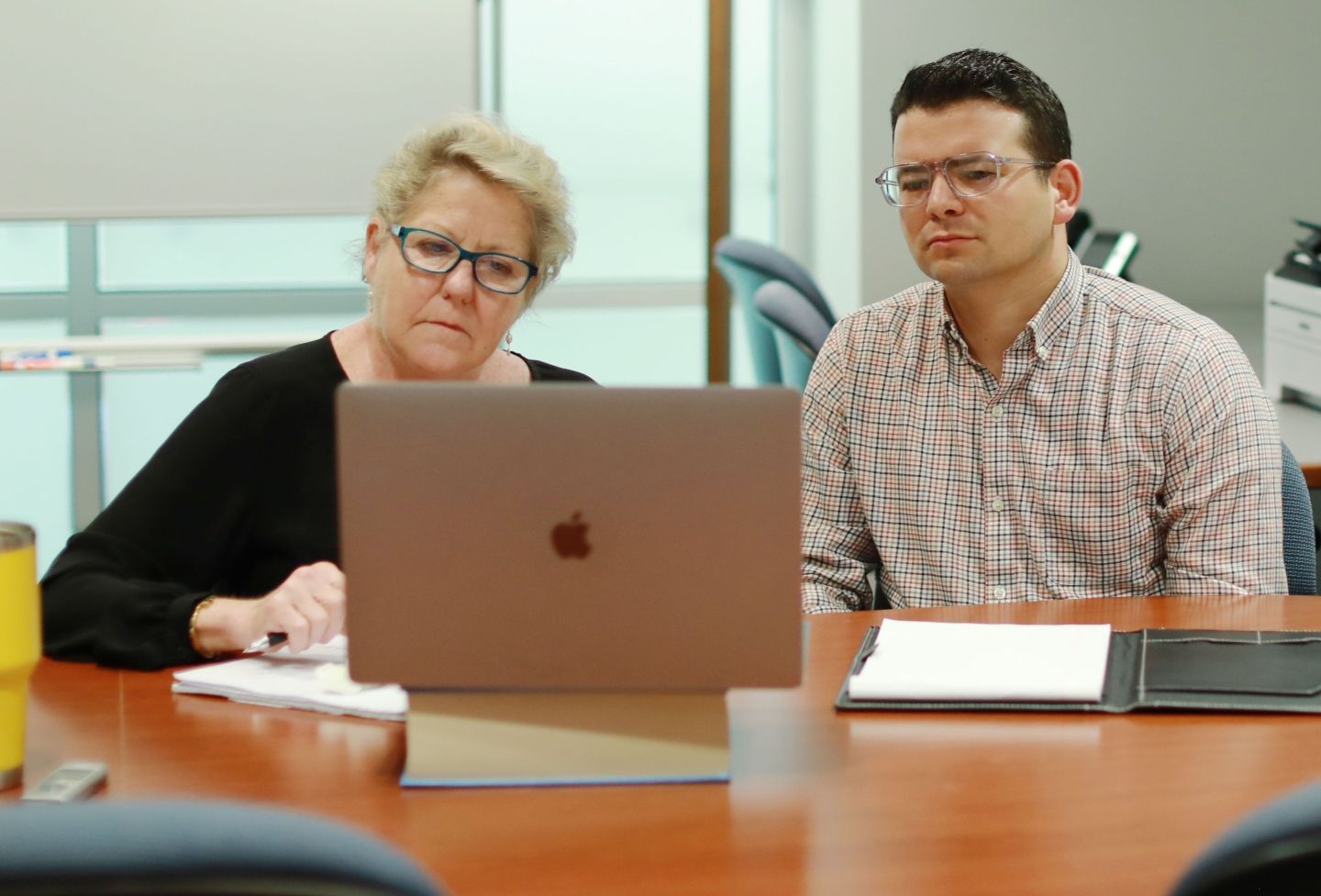University of Virginia law professor Richard Bonnie met with Vice President Joe Biden and other key federal officials for a round-table discussion on gun violence Friday in Richmond.
Biden was joined at Virginia Commonwealth University by several other federal officials, including Homeland Security Secretary Janet Napolitano '83, Health and Human Services Secretary Kathleen Sebelius, U.S. Sen. Tim Kaine and U.S. Rep. Bobby Scott of Virginia, and Deputy U.S. Attorney General Jim Cole.
Bonnie was among a group of Virginia experts that included VCU President Michael Rao, law enforcement officials and members of the Virginia Tech Review Panel, which recommended changes to state laws following the Virginia Tech shooting in April 2007. The panel's inquiry was coordinated with Virginia's Commission on Mental Health Law Reform, which Bonnie chaired. The commission, which had been established by the Virginia Supreme Court in 2006, recommended a comprehensive set of reforms subsequently adopted by the General Assembly (More).
"They wanted to know what we were able to accomplish [through reforms in Virginia law] and what didn't get accomplished that the federal government would be able to help with," Bonnie said. "The vice president and other members of the administration were also beginning the process of explaining the president's plan to interested constituencies and to the public. Virginia was a good place to begin."
The group met for more than two hours before briefly opening the meeting to the press.
Bonnie said the vice president acknowledged that some of the president's recommendations to reduce gun violence in the wake of the Sandy Hook shooting may not attract a consensus. But "a lot of the discussion focused on those recommendations that can attract wide public support, particularly in the mental health and school security areas."
"Our experience in 2007 was that tragedy sometimes creates an opportunity to enact reforms that might not otherwise have been possible, and that may be the case now" Bonnie said. "There is not only an opportunity for sustained public education, but also a public yearning for policymakers to find a common ground — and to take meaningful action."
Bonnie said Virginia's Commission on Mental Health Law Reform was able to forge consensus across political parties in 2008 when the General Assembly moved to adopt recommendations from the commission's report.
"We formulated and enacted a very strong legal foundation for helping to transform a public mental health services system in ways that will get people the treatment they need when they need it, before things spiral out of control and terrible things happen," he said.
Though the movement to enact reforms launched in 2008, the effort stalled somewhat with the recession later that year.
"The General Assembly adopted a body of enabling legislation during three very productive sessions in 2008, 2009 and 2010, but we need to re-start the process of investing in services. Unfortunately, a lot of our goals are not being met due to a lack of resources," Bonnie said.
Bonnie emphasized the importance of focusing efforts on those most vulnerable to the onset of serious mental illness — those between the ages of 16 and 24. For adolescents and young adults there are "major gaps" in the mental health services sector, he said.
Virginia is one of two states in the country that now requires universities to develop threat-assessment teams to respond to possibly troubled students. But Bonnie expressed concern over whether community colleges have the same capacity to take full advantage of threat-assessment teams as residential colleges.
"Obviously there are vast differences among community colleges and they have to respond to many different demands. However, we should begin to increase their capacity to increase mental health awareness among their students and to connect them with mental health professionals to identify and respond to troubled students," he said. "It's a national issue."
And one that Biden seemed interested in, Bonnie added. Biden's wife, Jill, teaches at Northern Virginia Community College.
Bonnie said the group also discussed making sure the National Instant Criminal Background Check System, which is used to check gun buyers, includes information from all states relating to people with disqualifying mental health histories.
"The president's plan does not recommend enlarging the class of people who are subject to disqualification, but they want get the states to report the people who are disqualified under current laws," he said. Virginia is a leader in reporting, he said. "We have a very good data system here and it could be the model for other states."
Bonnie, an expert on mental health and violence, also testified Thursday before a panel on the Sandy Hook Elementary School shooting (More). He is a professor of law, medicine, psychiatry and neurobehavioral sciences, and public policy at UVA, and leads the school's Institute of Law, Psychiatry and Public Policy.
Founded in 1819, the University of Virginia School of Law is the second-oldest continuously operating law school in the nation. Consistently ranked among the top law schools, Virginia is a world-renowned training ground for distinguished lawyers and public servants, instilling in them a commitment to leadership, integrity and community service.


